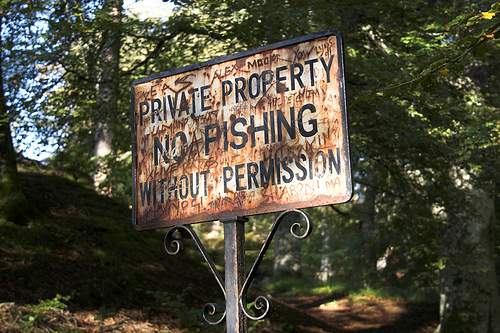World Oceans Day is meant to bring communities from around the globe together to celebrate the vast environmental, economic and social wealth of our oceans. It is also a day to remember the threats to ocean health and overfishing if we don’t manage our ocean resources accordingly. Apparently some politicians have other intentions. In herContinue reading “Fishy Politics on World Oceans Day”
Author Archives: admin
One step forward, two steps back on World Oceans Day
US Congress passes legislation opposing catch share fisheries one of the most promising management schemes for protecting fisheries and marine habitat
Energy Independence: A Proverbial Icon
According to Steven Chu, the U.S. Secretary of Energy and a Nobel physicist, “The most direct way to reduce our dependency on foreign oil is to simply use less of it.” That makes sense. The arguments in support of energy independence, however, do not. We hear that “[e]nergy independence means energy security (supply and priceContinue reading “Energy Independence: A Proverbial Icon”
Restore to what?
I’m in rainy Seattle to give a speech on the Green Tea Party at an environmental conference. Ads for the hotel boast that it has double shower heads, which had me pondering the following: We pass laws forcing people to install restricted flow shower heads. The hotel responds by installing a double shower head andContinue reading “Restore to what?”
SO2 Trading Platforms and Carbon Markets
In this interview on the John Batchelor Show, Terry Anderson contrasts the SO2 trading platforms in the United States with the European Carbon emission trading programs. He discusses why SO2 had promise initially, and what caused that market to collapse. https://www.perc.org/sites/default/files/media/JBS%20Anderson%20060112.mp3
Anti-Market, Anti-Environmental Fishery Policy
There is substantial theoretical and empirical evidence that property-based management schemes, such as catch-shares, prevent fishery collapse and ensure sustainability. The creation of property rights in ecological resources is also a principled conservative alternative to centralized regulation. Yet somehow a majority of House Republicans were bamboozled into voting to bar funding for further implementation of catch share funding along the Atlantic Coast and in the GulfContinue reading “Anti-Market, Anti-Environmental Fishery Policy”
Lessons from the Old West: The 150th Anniversary of the Homestead Act
By P.J. Hill On May 20, 1862, Abraham Lincoln signed the Homestead Act, an effort by the U.S. government to make 160 acres available to anyone who would move to unclaimed territory, build a cabin, farm the land, and live there for five years. Eventually 270 million acres were privatized by the process, ushering inContinue reading “Lessons from the Old West: The 150th Anniversary of the Homestead Act”
Access Unlimited, Trout Limited
Image by Angus Mackie/Creative Commons via flickr The May issue of Outdoor Life carried an article entitled “Can I Fish This Stream?” It included a map of the U.S. showing 45 states with “limited stream access,” 4 with “pending access litigation,” and 1 with “liberal stream access.” The one was Montana, about which the article’sContinue reading “Access Unlimited, Trout Limited”
Whatever happened to SO2 trading?
A decade ago, Dan Benjamin wrote that tradable permits seem to offer the advantages suggested by their proponents: “The total costs of achieving the current SO2 cap are at a minimum—and surely lower than under command-and-control. Perhaps now some serious consideration will be given to environmental protection systems in which there is even less administrative controlContinue reading “Whatever happened to SO2 trading?”
Lessons From the Old West: The 150th Anniversary of the Homestead Act
On May 20, 1862, Abraham Lincoln signed the Homestead Act, an effort by the U.S. government to make 160 acres available to anyone who would move to unclaimed territory, build a cabin, farm the land, and live there for five years. Eventually 270 million acres were privatized by the process, ushering in the great eraContinue reading “Lessons From the Old West: The 150th Anniversary of the Homestead Act”





